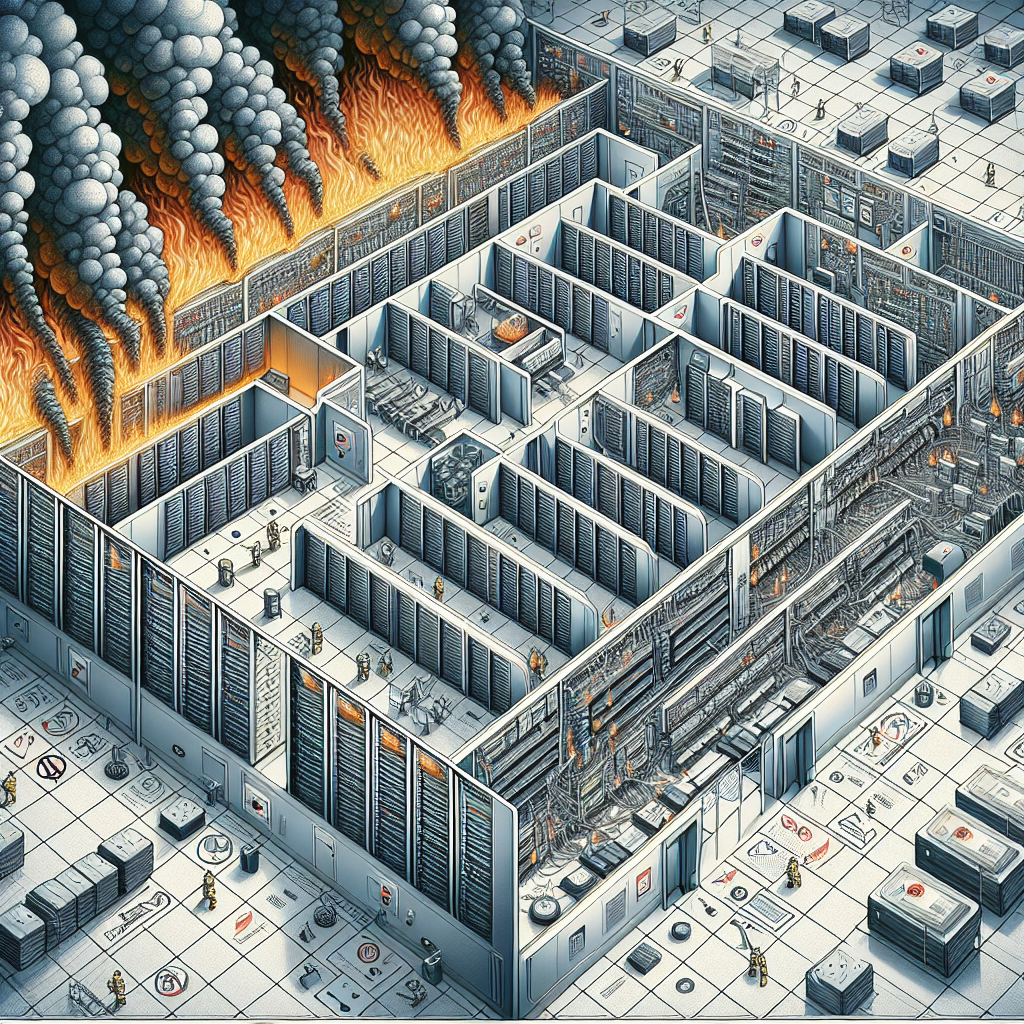In today’s digital age, data centers play a crucial role in storing and processing vast amounts of information. With the increasing reliance on data centers for everyday operations, it is essential for businesses to ensure the resilience of these facilities, especially when it comes to fire suppression planning and preparedness.
Fires in data centers can have catastrophic consequences, potentially resulting in data loss, downtime, and financial losses. Therefore, it is vital for businesses to have robust fire suppression systems in place to mitigate the risk of fire-related incidents.
One of the key aspects of fire suppression planning is conducting a thorough risk assessment of the data center. This involves identifying potential fire hazards, such as electrical equipment, overheating servers, and flammable materials, and assessing the likelihood of a fire occurring. By understanding the specific risks facing the data center, businesses can develop a targeted fire suppression strategy that is tailored to their needs.
In addition to conducting a risk assessment, businesses should also invest in state-of-the-art fire suppression systems to protect their data centers. There are several types of fire suppression systems available, including water-based systems, gas-based systems, and foam-based systems. Each system has its own advantages and limitations, so it is important for businesses to choose the system that best suits their data center’s needs.
Furthermore, businesses should regularly test and maintain their fire suppression systems to ensure they are functioning properly. This includes conducting regular inspections, testing alarms and detectors, and training staff on how to respond to a fire emergency. By regularly maintaining their fire suppression systems, businesses can ensure that they are prepared to effectively respond to a fire incident.
In the event of a fire, having a well-defined emergency response plan in place is essential. This plan should outline the steps that need to be taken in the event of a fire, including evacuating the data center, contacting emergency services, and activating the fire suppression system. By having a clear and concise emergency response plan, businesses can minimize the impact of a fire on their data center operations.
Overall, ensuring data center resilience requires a comprehensive approach to fire suppression planning and preparedness. By conducting a risk assessment, investing in state-of-the-art fire suppression systems, regularly testing and maintaining these systems, and developing a robust emergency response plan, businesses can protect their data centers from the devastating effects of a fire. With proper planning and preparedness, businesses can safeguard their data center operations and ensure the continuity of their business operations.


Leave a Reply